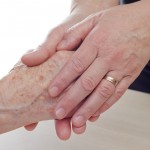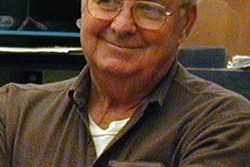You are taking care of a patient with metastatic pancreatic cancer. The disease has spread, surgery is not an option and second line chemotherapy has failed. He is in pain, but is poorly compliant with narcotic directions. He keeps falling down the stairs. His wife cries all the time. The family is desperate for help. The patient is in the office with loved ones, looking for guidance.
“What do we do now, doc?”
It does not take an advanced degree to list the reasons why “hospice,” is probably the best answer:
-Better coordination of medication.
-Improved pain and symptom control
-Family counseling and coordination.
-Vital home equipment like a hospital bed, shower chair or commode.
-24hour home support.
-An alternative to hospitalization.
-May actually live longer, than with aggressive intervention.
-Bereavement therapy, when he dies.
Why hospice is obvious…. but, there is an answer you have not considered.
To save the doctor. The doctor is not sick, you say? She does not suffer, like the patient. She moves on. I agree, she does not suffer like the patient and her professional role gives some protection; but she does suffer in her own way.
If a doctor, day after month after year pushes for “cure” in patients who are incurable, she will fail, again and again. With each loss she will grow more tired, more frustrated, more distant and more burned out. If the very care she gives causes side effects which are so severe as to be difficult to separate from the disease, the doctor comes to feels she is the cause of suffering and pain. Confused and spinning, having nothing to offer but hollow promise, the doctor’s role feels like a disease.
A physician, faced with push-to-the-wall-cure-all burn out, has two choices to emotionally survive. The first, and most common, is to practice in a field of medicine devoid of such events. A simple answer, but it limits the number of docs who are willing to fight the toughest battles.
The other solution is to focus on the science and technology of medicine, and let one’s heart grow cold to the fear, suffering and death, which can be disease. Then, offering only treatment intervention, instead of communication and compassion, the physician protects herself, even as she causes more harm.
On the other hand, what if the doctor had referred to hospice. By this I mean, that the doctor involved patients, at the right time, in a comfort, palliative and hospice based approach to advanced terrible illness. How does this choice affect the doctor?
First, and critically important, the doctor is honest with herself. She does not live in a make believe world where 33 year old mommies with advanced melanoma survive to be grandmothers. Rather, the doctor focuses, intellectually and emotionally, on what is realistic. Cure, whenever possible. Extend survival, if practical. Relieve pain, as needed. Comfort, always. Thus, no matter what happens the doctor knows she has something to offer, other than the naked curse of failure.
The doctor does not give false hope, but has honest conversations. It may still be reasonable to offer chemotherapy or other treatment intervention, but the goals are clear. Perhaps, it is to extend life or to control pain. Maybe treatment is not reasonable at all. Sincere achievable objectives relieve the doctor of stress and the feeling that she is lying, at least by action, to each patient.
Patients and doctors can have open, clear discussions in order to set goals which can be reached. Neither wastes precious time on delusions and false promise. Patients are saddened to learn that extended survival is not possible, but not as devastated as when they lose short-term quality, when that is all the time that remains. Instead, patient and family are empowered by the truth. Only the patient can determine the correct path in such difficult times and when the physician is an honest guide, she can be comforted to be helping, instead of creating obstacles by offering impossible hope.
Not only patients receive support and comfort through hospice. The simple goal of hospice, to live the end-of-life period well, unburdens the doctor of the expectation to produce miracle cures. This allows the physician and patient to walk together and share what is still, the miracle of life.







10 Comments